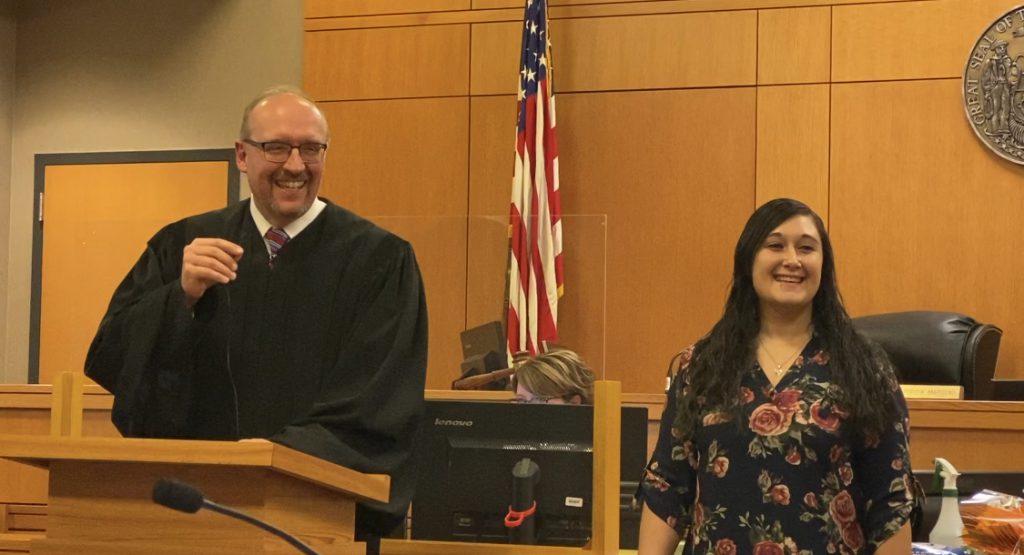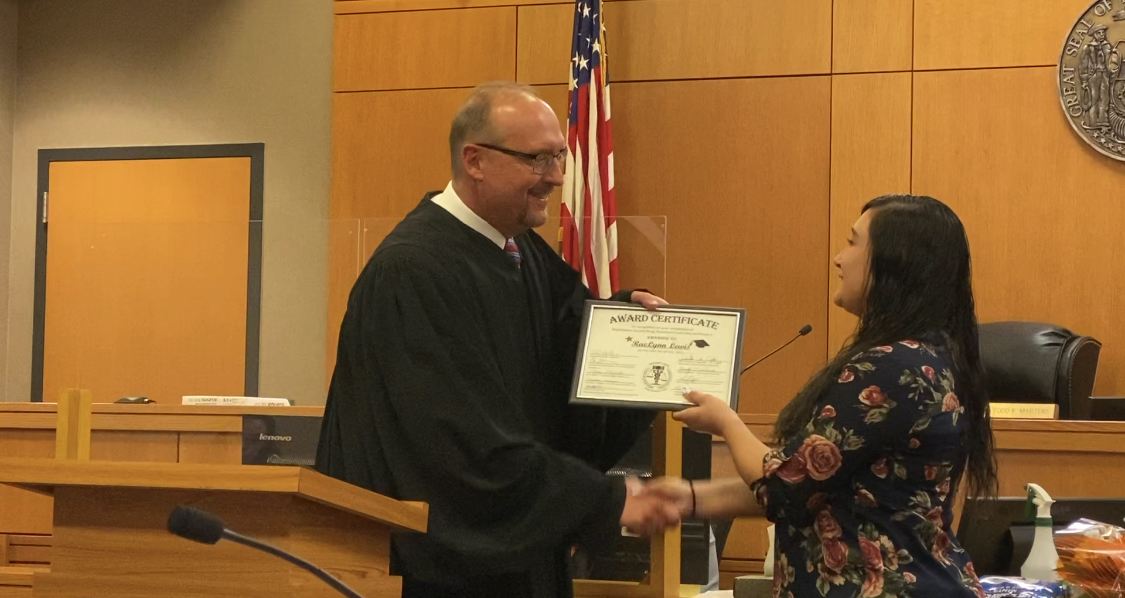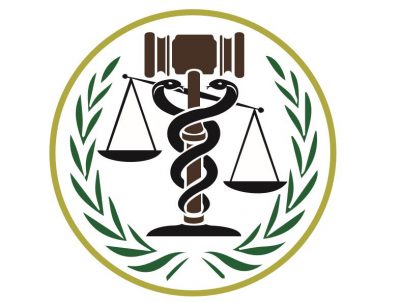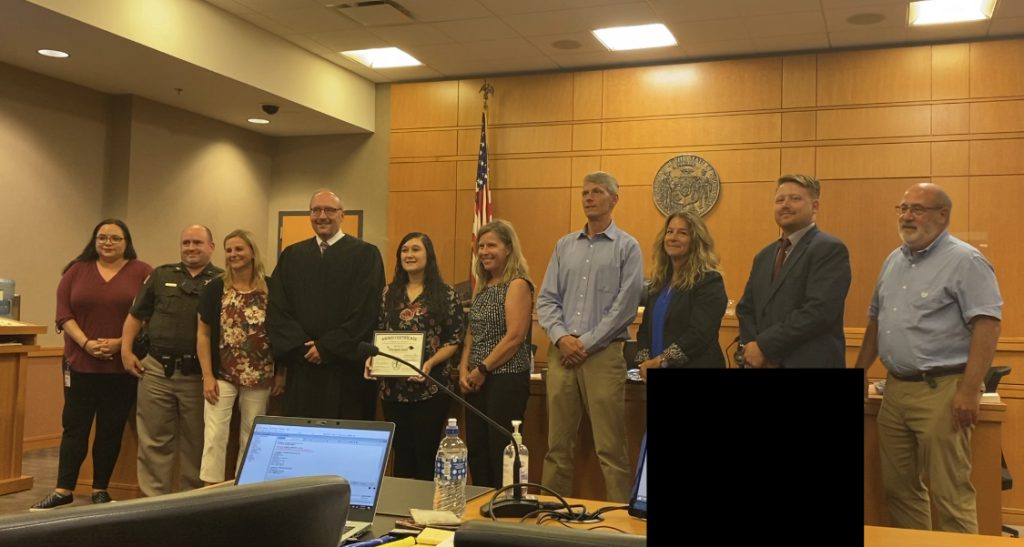Washington Co., WI – Washington County Drug Treatment Court celebrated its first graduation just two short years after implementing the program introduced by Washington County Judge Todd Martens.
It was April 2019 when Judge Martens made a presentation before the County Board on starting a Drug Treatment Court in Washington County.
“A treatment court is an opportunity to take someone who has been charged with one or more crimes and divert them toward treatment,” said Martens. “If they successfully complete treatment they get the charges dismissed at the end of the diversion.”

During the court appearance Judge Martens introduced Rae Lynn Lewis, 31, of Richfield.
“We got to know Rae Lynn over the past 15 months and it’s fair to say she had some significant issues… and that’s probably a bit of an understatement,” said Martens. “She has worked hard, made tremendous progress and made fantastic changes to her life.”
Martens talked about the approach to drug court and rather than looking at people in the defendant’s chair or in jail uniforms as problems.
“What we really try to do in treatment court is look at people as people with problems, not problems themselves and Rae Lynn was a great example of this,” he said.

“One thing we forget sometimes is addiction is not an individual disease but a family’s disease,” said Martens.
Lewis’s father then spoke about his daughter who grew up in a positive household but went down a path of bad choices which soon led to addiction.
“We never thought this would happen to any of us,” he said. “The current program offered through Washington County was a big change for her and our family saw hope.”

Lewis’s father noted some key steps his daughter took to make for change including shedding bad people in her life, dropping social media, wiping her cell phone and refusing to share her number.
“She learned to trust the trustworthy and she confessed without shame her past and verbalized her progress and I’m very proud of her progress,” he said.
Lewis credited the team with helping her succeed. “I wouldn’t have been able to do it without you guys,” she said. “Without that support and having the confidence in me when I didn’t have confidence in myself. Thanks for not giving up on me and always staying on my side.”

After Judge Martens presented Lewis with the graduation certificate, he also waived any pending charges. Lewis’s support team then gathered for a photo.
Washington County had a similar program about 13 years ago. “In 2006 Washington County started an OWI Treatment and Diversion program or TAD,” said Martens. “It was a way to get people who had a second offense drunk driving into treatment with the hope they would be less likely to offend later on.”
Out of the 72 counties in Wisconsin, 66 have some form of drug treatment court.
Drug treatment court, according to Martens, is significantly different from TAD in terms of reducing recidivism because there’s much more accountability during the treatment process.
Requirements include regular face-to-face contact with Elevate, evaluation updates, intense outpatient treatments and even inpatient treatments. It also can include medication-assisted treatment and random drug screenings to guarantee a person adheres to absolute sobriety.
Martens said the biggest difference in Drug Court is the actual regular involvement of the courts. “You have continuing regular involvement with a judge, a prosecutor, a defense attorney and a treatment provider,” said Martens. “In this program a person has to come back to court regularly and it can be as often as every week and as a person maintains their sobriety it becomes less frequent.”
Staffing, said Martens, where every case is reviewed weekly, is a large part of the success of the program.
“We consistently stay in people’s business,” he said. “We talk about how things are going with each case and we meet with each person and there are rewards or sanctions administered and it’s all done in a formal courtroom setting. Research suggests that continuing judicial involvement is a critical component in helping people maintain sobriety.”











